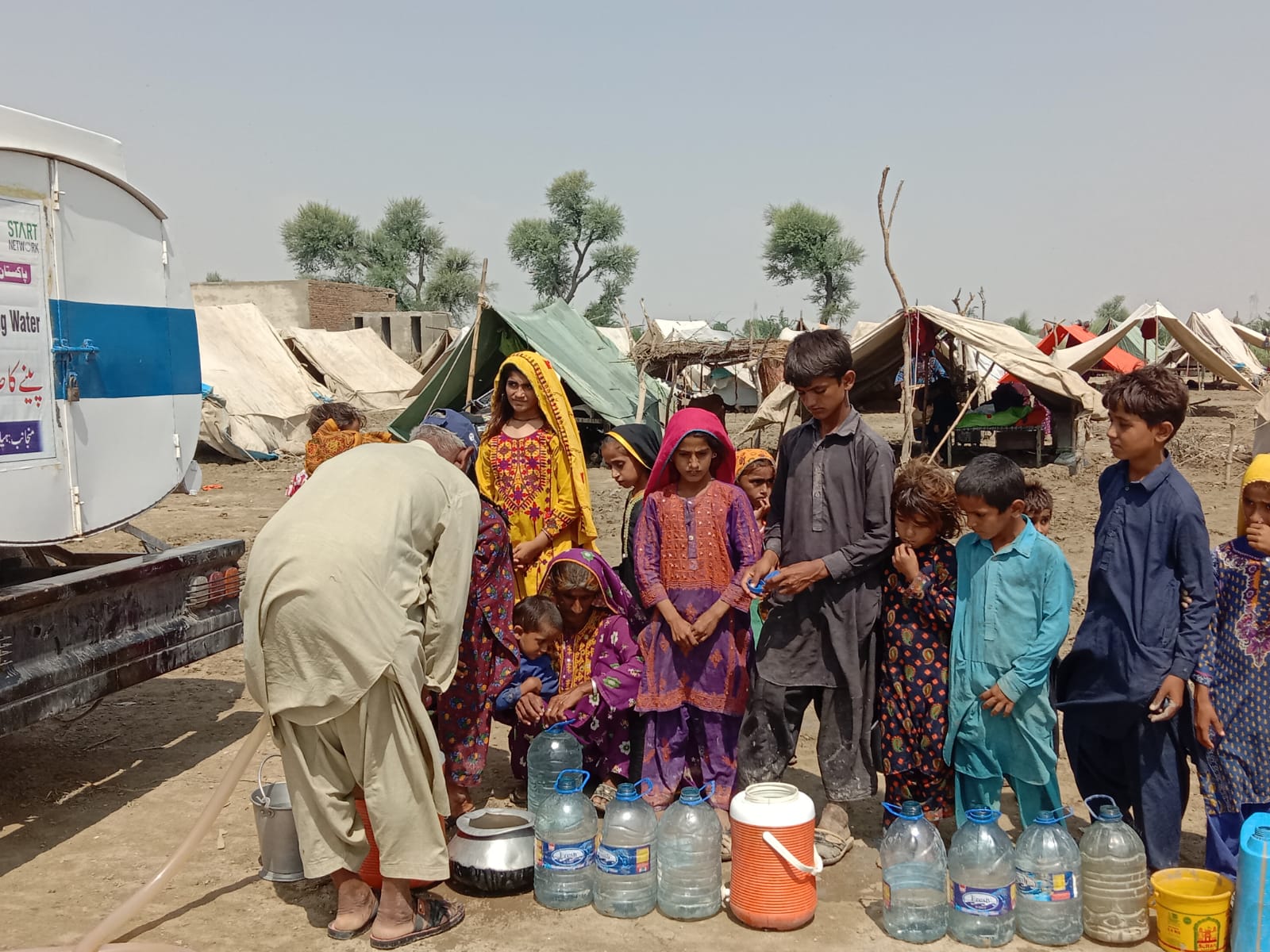Three months on from the devastating floods that submerged vast swathes of Pakistan, locally led fundraising and early action have proven pivotal in reducing the human toll of the crisis. As the international humanitarian sector grappled with questions on how to effectively intervene, local actors found agile, context-specific support mechanisms and took action to assist affected communities immediately.
The scale of the impact, with hơn 33 triệu người (more than six times the population of Norway) affected and leading to the deaths of trên người 1500, was the result of a catastrophic climate-related event. At Start Network, we believe that INGOs need to be faster and more flexible, listening to the needs of those in the front lines to enable prompt and increasingly effective disaster mitigation.
Working at the periphery of a largely centralised aid sector, Start Network is pushing for a new form of support that will propel early and locally led crisis response, underpinned by fast, flexible financing. These principles are paramount to enabling the traditional aid sector become more impactful in delivering critical humanitarian assistance in a world facing increasing and sometimes unpredictable climate hazards.
In response to the Pakistan flood crisis, for instance, a group of international, national and local Start Network members (known collectively as the SẴN SÀNG Pakistan hub) came together to jointly fundraise for early flood response. Along with securing financing from the Quỹ bắt đầu and the hub’s national reserves, their combined efforts also independently secured 1.2 triệu € từ Văn phòng đối ngoại liên bang Đức for direct, community-driven solutions.
Pakistan’s monsoon season occurs annually, between July and September. Initially arousing cause for concern on 4 July, Start Network member organisations working in the country began planning to raise an alert to the Start Fund; a fast response and early action mechanism for underfunded, under-the-radar emergencies.
HANDS Pakistan, Hiệp hội Phát triển Ngôi sao Sáng Balochistan (BSDSB) and seven other alerting members conferred, consulting with relevant government stakeholders on July 7 to identify gaps where the Start Fund’s intervention would be crucial. On 12 July, members raised Alert 619 and were allocated Bảng 400,000 GBP để thực hiện contextually relevant projects in Quetta, Pishin and Killa Saif Ullah districts.
Concurrently, READY Pakistan allocated a further Bảng 129,000 GBP towards the crisis and targeting Gia đình 1200 in six districts (spread across four regions) that the global Start Fund allocation wouldn’t suffice stretching to. To date, the above Start Network initiatives have supported approximately Gia đình 10,200 with food and basic personal care items, shelter materials, cash transfers and WASH (Water/Sanitation/Hygiene) facilities.
Perhaps most notably, these responses came a month prior to the UN Central Emergency Response Fund’s allocation of $10,071,433 USD at the end of August and the Pakistan Government’s appeal for international support in September, thereby assisting communities before the most severe impacts of the crisis were felt. Intervention by major donors was also most likely catalysed by locally driven advocacy, including READY Pakistan’s engagement with national mainstream media, which raised the flooding emergency’s visibility, drawing attention from the international humanitarian community.
"While Start Network’s contribution represented only a small fraction of what the people of Pakistan needed in the early days of the floods, the quick and collaborative action by Ready Pakistan to raise the profile of the floods and attract independent funds, helped to drive media attention and catalyse the larger funds to step up their giving,” says Christina Bennett, Start Network’s CEO.
Muhammad Amad, IDEA Pakistan Executive Director says, “GFFO funding is very timely support which came with flexibility and whereby localisation is very much embedded. It provided us an opportunity to allocate 1.2 million Euro immediately to flood response through READY Pakistan members across the country. We will be able to expand our risk financing model geographically and also include more hazards for anticipatory action. Strategically speaking, this funding will help us in refinement of our risk financing model to adjust triggers but also to consolidate and establish READY Pakistan as a signature model around anticipatory action, localisation and innovations in humanitarian action".
As the world contends with the destruction that Pakistan’s monsoon floods have left in their wake, as well as the cascading impact of an emerging health crisis, some truths regarding the role of local organisations within the sector begin to become more visible, debunking myths long held by the traditional aid sector:
- Local organisations already have expertise to respond to crises affecting their communities. International actors should now begin to do away with ‘capacity building’ initiatives, especially when conducted to improve ‘knowledge’ in local contexts. Offering flexible, long-term financial sustainability support instead is ultimately more meaningful and breaks unnecessary dependencies, some of which have been purposefully retained to ensure certain institutions continue to exert long-term influence in middle-to-low income countries.
- Local organisations, who are already in closest proximity to crises, are more agile compared to international actors, and in situations such as the 2022 Pakistan floods where literally every second counts, they are better positioned and adapted to prevent loss of life and livelihoods.
- Local or national networks in the Global South that build themselves organically and with minimal Global North interference have more autonomy, opportunities for self-determination and increased flexibility to manage unprecedented community challenges. For authentic locally led action to take place, therefore, international actors must step out of the way, only chipping in where they’re called upon for specific support.

